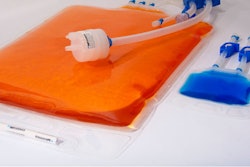This content was written and submitted by the supplier. It has only been modified to comply with this publication’s space and style.
NSF-DBA, an NSF International Company that provides dietary supplement training, consulting and testing services, worked in conjunction with regulators and industry trade groups to coordinate the development of the new guideline. The guideline outlines the science-based criteria necessary to support expiration dating in order to comply with the current Good Manufacturing Practices (GMP) for dietary supplements.
“If expiration dates or voluntary claims such as “best by” or “use before” appear on a nutritional supplement label, FDA officials expect supporting stability test data to be available and they will look for this information during GMP inspections,” said Casey Coy, NSF-DBA Group Leader. “Dietary supplement companies can be proactive and use this guideline to ensure their expiration dates are backed by sound science.”
The guideline suggests that nutritional supplement companies identify the physical, chemical and microbiological characteristics under long-term storage. It specifies that companies understand the impact of manufacturing, packaging, labeling, distribution and holding/warehouse processes may have on a product's stability. The guideline also proposes that stability testing be conducted in the same container used for marketing the nutritional supplement product. Factors involved in stability testing include: dietary ingredient strength, chemical fingerprints, microbial growth, preservative content, moisture content, pH, viscosity and oxidation, among other parameters such as the product's container-closure system.
In addition to conducting stability studies, NSF-DBA provides analytical method development and validation services and a wide array of consulting, training and regulatory support services to the dietary supplement industry. As the developer of the U.S. national standard for dietary supplements and provider of accredited third-party testing and certification of dietary supplements, NSF has in-depth knowledge of the supplement manufacturing and retailing industries and possesses a strong reputation for protection of public health.
“If expiration dates or voluntary claims such as “best by” or “use before” appear on a nutritional supplement label, FDA officials expect supporting stability test data to be available and they will look for this information during GMP inspections,” said Casey Coy, NSF-DBA Group Leader. “Dietary supplement companies can be proactive and use this guideline to ensure their expiration dates are backed by sound science.”
The guideline suggests that nutritional supplement companies identify the physical, chemical and microbiological characteristics under long-term storage. It specifies that companies understand the impact of manufacturing, packaging, labeling, distribution and holding/warehouse processes may have on a product's stability. The guideline also proposes that stability testing be conducted in the same container used for marketing the nutritional supplement product. Factors involved in stability testing include: dietary ingredient strength, chemical fingerprints, microbial growth, preservative content, moisture content, pH, viscosity and oxidation, among other parameters such as the product's container-closure system.
In addition to conducting stability studies, NSF-DBA provides analytical method development and validation services and a wide array of consulting, training and regulatory support services to the dietary supplement industry. As the developer of the U.S. national standard for dietary supplements and provider of accredited third-party testing and certification of dietary supplements, NSF has in-depth knowledge of the supplement manufacturing and retailing industries and possesses a strong reputation for protection of public health.
Companies in this press-release





















